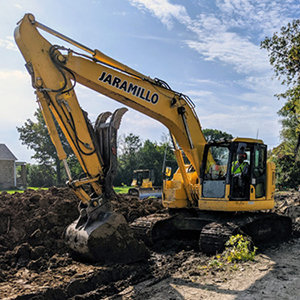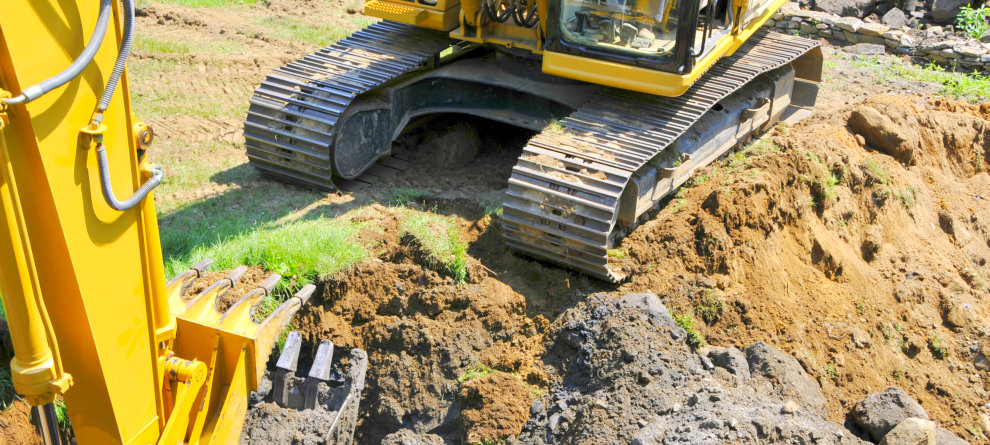Excavating Ohio - Top Excavation Specialists for Ohio Projects
Excavating Ohio - Top Excavation Specialists for Ohio Projects
Blog Article
Comprehensive Excavation Strategies: Mastering the Principles for Success
The mindful preparation, accurate execution, and meticulous attention to detail called for in excavation projects demand a detailed strategy that includes various essential aspects. The real proficiency exists not just in recognizing these principles yet in seamlessly integrating them to navigate the intricacies of excavation tasks with finesse.
Recognizing Excavation Job Planning

The first stage of any type of excavation job is the planning stage, where crucial decisions are made that can dramatically impact the end result of the project. Understanding the task timeline, extent, and budget restrictions is essential for creating a detailed excavation strategy that ensures the task's success.
One secret facet of excavation task preparation is the development of a thorough timeline that details the series of activities, due dates, and milestones. This timeline works as a roadmap for the job team, permitting them to track progress and make needed modifications to make sure the job stays on timetable. Furthermore, a distinct budget plan that makes up all costs, including tools service, labor costs, and materials, is vital for staying clear of expense overruns and delays. By very carefully considering all these aspects during the preparation phase, excavation tasks can be performed effectively and properly, causing successful results.
Soil Analysis and Site Assessment
Carrying out complete dirt evaluation and website examination is a critical action in the prep work phase of any excavation job. Soil evaluation includes identifying the make-up, structure, and residential properties of the soil at the excavation website. This info is crucial for comprehending the soil's bearing capability, wetness content, and potential for disintegration, which are vital aspects in identifying the excavation approaches and equipment needed for the task.
Website evaluation exceeds dirt analysis and encompasses a more comprehensive assessment of the overall site problems. This examination consists of determining any kind of prospective hazards, such as underground energies, ecological worries, or unsteady terrain, that might impact the excavation procedure. By thoroughly evaluating the website, job managers can create effective excavation methods that focus on safety and security, performance, and environmental management.
Making use of sophisticated innovations like ground-penetrating radar, dirt tasting, and drone studies can improve the precision and efficiency of soil analysis and website evaluation. Spending time and resources in these preliminary steps can eventually save time and stop costly hold-ups or difficulties throughout the excavation procedure.
Tools Selection and Usage
Effective excavation jobs count heavily on calculated devices selection and use to make sure ideal performance and efficiency. Picking the appropriate devices for the job is critical in optimizing performance and minimizing downtime. Aspects such as the kind of soil, deepness of excavation, and job range play a substantial role in identifying one of the most ideal tools for the task handy.

Along with picking the proper devices, appropriate application is essential to task success. Operators must be educated to take care of the tools safely and effectively - dump their explanation truck companies in ohio. Routine maintenance checks and prompt fixings aid prevent malfunctions and guarantee regular efficiency throughout the project
Safety Actions and Laws Compliance
In the world of excavation projects, prioritizing precaution and conformity with guidelines is extremely important to ensuring a safe and secure and lawfully sound operational environment. Security steps incorporate a series of methods, consisting of performing thorough site evaluations, implementing proper signage and obstacles, and offering ample safety and security training for all personnel included in the excavation process. Adherence to laws, such as OSHA needs in the United States, ensures that the excavation job fulfills the essential standards to secure workers, onlookers, and the surrounding environment.

Monitoring Progression and Adjusting Strategies
How can forecast supervisors properly track the view website advancement of excavation jobs and adjust their methods appropriately to enhance results? Monitoring progression is essential for ensuring that excavation tasks stay on track and meet target dates. Job managers can make use of numerous devices and techniques to track progression, such as everyday report card, regular website evaluations, and progressed tracking modern technologies like drones and general practitioners tracking systems. By continually keeping an eye on the job's innovation, supervisors can identify any potential hold-ups or concerns at an early stage and take aggressive steps to resolve them.

Conclusion
To conclude, mastering the principles of detailed excavation strategies is essential for the success of any kind of job. By understanding job planning, assessing soil and site problems, selecting ideal devices, following security regulations, and checking development, project supervisors can ensure a smooth and reliable excavation procedure. Executing these techniques will certainly cause effective outcomes and lessen possible dangers or troubles during the excavation job.
The preliminary stage of any type of excavation task is the planning stage, where critical decisions are made that can dramatically affect the end result of the project. Comprehending the task extent, budget, and timeline restraints is vital for creating a thorough excavation strategy that makes sure the task's success.
Just how can forecast supervisors effectively track the development of excavation projects and adjust their techniques accordingly to enhance results? By carefully keeping track of progress and being ready to adapt techniques, job managers can improve the general success of excavation jobs.
By recognizing task preparation, assessing soil and website conditions, picking proper tools, abiding with security laws, and keeping an eye on progress, project managers can make sure a smooth and effective excavation process.
Report this page